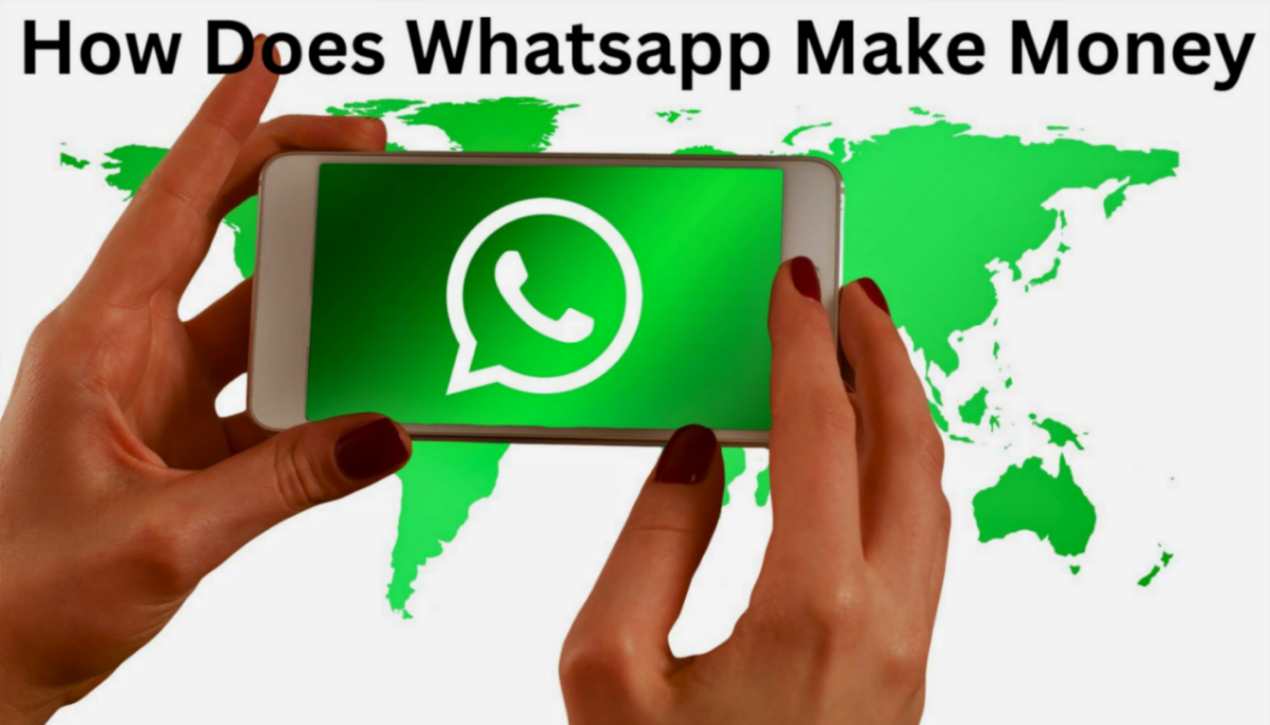WhatsApp is one of the most widely used instant messaging apps worldwide but have you ever thought about how does WhatsApp makes money? You may download and use it for free. We will explore WhatsApp’s business model in this post Covering its background, methods of monetization and potential future developments.
History of WhatsApp
WhatsApp was founded in 2009 by John Koum and Bryan Action, both former employees of Yahoo. Initially, the app was a paid service that required a small annual subscription fee. This straightforward model helped the app gain traction and by 2014, WhatsApp had over 400 million active users.
WhatsApp was purchased by Facebook in 2014 for staggering $19 billion With this purchase, WhatsApp’s history witnessed a major transformation that had an impact on its monetization tactics and business strategy.
Business Model Overview
We can understand how does WhatsApp makes money by studying the its business model.
Free versus Premium Services
WhatsApp used to run on a freemium business model, in which users had to pay a little amount after the first year of usage was completely free. But with Facebook’s acquisition, this approach was phased out and WhatsApp became fully free for users.
Initial Subscription Model
The subscription model was straight-forward: beyond the first year of free access, members were charged $1 annually. Although some money was earned by this strategy, it was insufficient to sustain long-term development.
Strategies for Monetization After Facebook Acquisition
After Facebook acquisition, Meta gave a thought on how does WhatsApp make money and proposed few changes in revenue model.
Giving Up the Subscription Charge
Following its acceleration by Facebook WhatsApp stopped charging a monthly fee, allowing users to use the service without restriction. This action was taken in an effort to grow WhatsApp’s user base and improve its smoother integration into Facebook’s network.
Including Facebook Ecosystem Integration
With Facebook’s extension of its user base and resources, WhatsApp’s connection with the social media giant opened up new revenue opportunities.
WhatsApp Business API Overview

Launched in 2018, WhatsApp Business is a variation on the app meant for small companies. It gives companies options for automatic answers, catalog presentation, and more, therefore enabling more effective consumer communication.
APIs Used in Business:
WhatsApp Business API allows companies to notify clients, provide customer service messages, and send promotional materials. Among banks, airlines, and e-commerce businesses especially, this service is quite sought after.
Income from API Consumption
WhatsApp bills companies for utilizing its API, especially for messaging to non-opt-in consumers. A substantial share of WhatsApp’s income comes from this pay-per-message approach.
Strategies of Advertising
WhatsApp status ads
Although WhatsApp has always eschewed advertising, it has investigated the potential of showing adverts in the WhatsApp Status function, much as Instagram Stories allow. These advertisements would show between status updates, offering a fresh income source.
Integration of Facebook Ad Tools
WhatsApp’s connection with Facebook’s advertising network presents even another possible income stream. This might enable companies to produce Facebook tailored advertising and divert visitors to WhatsApp, where they can interact with consumers straight-forwardly.
WhatsApp Pay
Overview of WhatsApp Pay
Users of WhatsApp Pay, a digital payment system, may send and receive money just through the app. First introduced in India, it has since grown to other markets.
Income Sources from Payment Systems
Transaction fees paid to companies utilizing WhatsApp Pay bring in money for WhatsApp. In markets where people embrace digital payments especially, this service is quite profitable.
Business Solutions
Communication Tools for Big Business
For big companies, WhatsApp provides tailored communication solutions that let them utilize the network for internal communication, customer service, and more.
Earnings from Enterprise Services
Usually subscription-based, these commercial options give WhatsApp a consistent income source.
Partnerships and Collaborations
Strategic Cooperation
To improve its offerings and increase its profile, WhatsApp has developed strategic alliances with other businesses. Usually, these collaborations include agreements on revenue-sharing.
Income generated through partnerships
Working with telecom companies, for example, may bring in money by pushing WhatsApp as the preferred chat tool.
Data Monetization
Analytics and Insights
From its users, WhatsApp gathers enormous volumes of data that may be anonymised and applied to offer companies analytics and insight. This information can enable businesses to strengthen their marketing plans and better grasp their consumers.
Issues and Privacy Rights
A divisive topic, data monetization has many consumers worried about privacy. Over its data sharing policies with Facebook, WhatsApp has come under fire and regulatory investigation.
Future Income Sources
Potential Future Plans
WhatsApp keeps looking at fresh ways to make money. Future income sources might be improved payment systems, premium features for corporate users, and more advertising.
Market Trends and Possibilities
WhatsApp is positioned to profit from developments in digital communication and payments as they keep expanding. The great user base and excellent brand awareness of the app offer a good basis for upcoming expansion.
Problems in Monetization
Other Messaging Apps Create Competition
Other chat applications such WeChat, Telegram, and Signal create fierce rivalry for WhatsApp. These rivals are also looking at creative monetizing techniques that might affect WhatsApp’s market dominance.
Privacy and Regulatory Difficulties
Still major obstacles for WhatsApp include privacy and regulatory concerns. A careful balancing act is ensuring data protection legislation compliance while making money off of user data.
Global Reach and Income Distribution
Variations in Revenue Across Regions
Regionally, WhatsApp’s income distribution differs greatly. For instance, whereas corporate API usage is stronger in developed economies, its payment services are more sought for in areas like India and Brazil.
Main Markets
Important WhatsApp markets are the United States, Brazil, Indonesia, and India. These nations are absolutely vital for income production as their user bases and degrees of involvement are so high.
Base and Engagement of Users
Developing the User Base
Since its launch, the user base of WhatsApp has expanded enormously. The app currently has over 2 billion active users globally as of 2023.
Revenue Impact of Engagement Metrics
The monetization strategy of WhatsApp depends on high user involvement. Users of the app create additional chances for revenue through business interactions, payments, and perhaps advertising the more they interact with it.
In conclusion
The transformation of WhatsApp from a basic messaging tool into a revenue-generating behemoth is an amazing narrative. By means of deliberate changes in its business model, interaction with Facebook’s ecosystem, and creative monetization techniques, WhatsApp has become a major participant in the digital communication market. It will be fascinating to observe how the app negotiates the possibilities and difficulties in the always-shifting digital terrain as it develops.
FAQ
1. How can WhatsApp profit without advertising?
A: WhatsApp mostly generates money via WhatsApp Pay transaction fees and via its WhatsApp Business API, which charges companies for messaging consumers.
2. Is WhatsApp Business free?
A: While WhatsApp Business is free to download and use, companies running client conversations via the WhatsApp Business API might pay fees.
3. In what ways may WhatsApp Pay help generate income?
A: Through transaction fees paid to companies utilizing WhatsApp Pay, the tool creates income.
4. What future monetization strategies does WhatsApp intend to employ?
A: Future ideas could call for more advertising, business user premium features, and improved payment systems.
5. How may WhatsApp guarantee user privacy while making money?
A: By using end-to-end encryption for all messages, which means only the sender and receiver can view them, WhatsApp guarantees user privacy. The business follows rigorous data privacy rules and European GDPR standards as well. To safeguard user identities, monetizing initiatives, including data analytics, employ anonymized data.
6. How does WhatsApp make a profit?
A: WhatsApp make profits through strategic partnerships with various companies to provide integrated services such as flight booking, ordering food. WhatsApp makes charges for these services from the companies.
7.Who is CEO of WhatsApp?
A: Jan Koum was a Founder and CEO at WhatsApp.
8. Who pays for WhatsApp calls?
WhatsApp voice calls are usually free. But it incurs data with mobile operator for that you have to pay data expenses. If you make call on WIFI then you can reduce the charges or make calls for free.
9. How does WhatsApp make money in India?
A: WhatsApp business version is designed specifically for businesses. Businesses have to pay the fee for the usage of platform.
10. Does WhatsApp make money from data?
WhatsApp may use the user data to display targeted ads in other meta platforms.
11.How did WhatsApp make money before Facebook?
A: WhatsApp used to charge $1 per year after one year of free usage from each and every subscriber.
